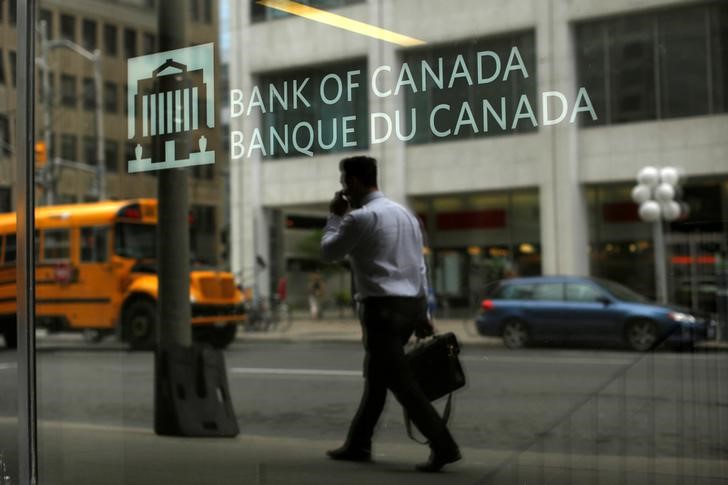By Andrea Hopkins and Fergal Smith
OTTAWA/TORONTO, July 10 (Reuters) - A trade row between Canada and the United States won't be enough to stop the Bank of Canada from raising rates this week, but bigger storm clouds over trade could mean it is the last hike for a while, analysts and financial markets believe.
While the central bank is widely expected to raise interest rates to 1.50 percent from 1.25 percent on Wednesday to head off inflation pressures, observers expect the bank to attempt a "dovish hike," signaling a more cautious stance amid a brewing trade war.
"The exact impact of the tariffs is tricky, but at the moment they are happy to accept the measures are too small to affect what they are going to do this week," said Stephen Brown, senior Canada economist at Capital Economics.
Poloz has already implied the new tariffs could be an argument for raising rates, but has said the bank cannot set monetary policy on the risk there will be more tariffs, Brown noted.
Financial markets have priced in a more than 90 percent likelihood of a rate increase this week by the bank, which has raised rates three times since July 2017 but has been on hold since January. BOCWATCH
While the bank may attempt a dovish hike that is accompanied by guidance that reduces expectations for additional tightening, Poloz's distaste for explicit forward guidance likely means tariffs and trade will be raised as a risk, without a clear signal for the timing of the next rate move.
"You can do a dovish hike but you need to have fairly explicit forward guidance and it just doesn't really seem like Poloz's style," said Andrew Kelvin, senior rates strategist at TD Securities.
The Bank of Canada did not offer immediate comment.
In the short term, the bank can point to higher inflation, stronger wage growth, and job gains as evidence Canada's economy is robust, but the protectionist rhetoric of U.S. President Donald Trump could douse nascent business investment and hammer consumers already weighed down by higher interest rates.
"This is going to create a lot of uncertainty regarding investment. If you have to build a new plant, you have to think twice about whether Canada is the right place to do so," said Jean-Paul Lam, economics professor at the University of Waterloo in Ontario.
Canada struck back in June at the Trump administration over U.S. steel and aluminum tariffs, vowing to impose punitive measures on C$16.6 billion ($12.63 billion) worth of American goods until Washington relents.
U.S. tariffs on Canadian steel and aluminum and retaliatory Canadian tariffs on C$16.6 billion worth of American goods, including metals but also foodstuffs such as coffee, ketchup and whiskies will likely boost inflation and growth in the short term, as businesses and consumers scramble to find new suppliers or imports. Ciuriak, senior fellow at the Centre for International Governance Innovation, said Canada's retaliatory tariffs alone will boost consumer prices by about 0.2 percentage point. Canada's annual inflation rate was 2.2 percent in May.
Economic growth may also be boosted and jobs added as supply chains are rejigged. But eventually companies which have lost their U.S. market or been underpriced by new competitors could fail, sparking a chain reaction.
Ciuriak said that while Trump's tax cuts and Canadian government aid for businesses hurt by the tariffs may mask the cost of trade friction, the stimulus is unsustainable, and economic pain will be felt eventually.
"The do-si-do changing partners has a real-time cost," he said.
